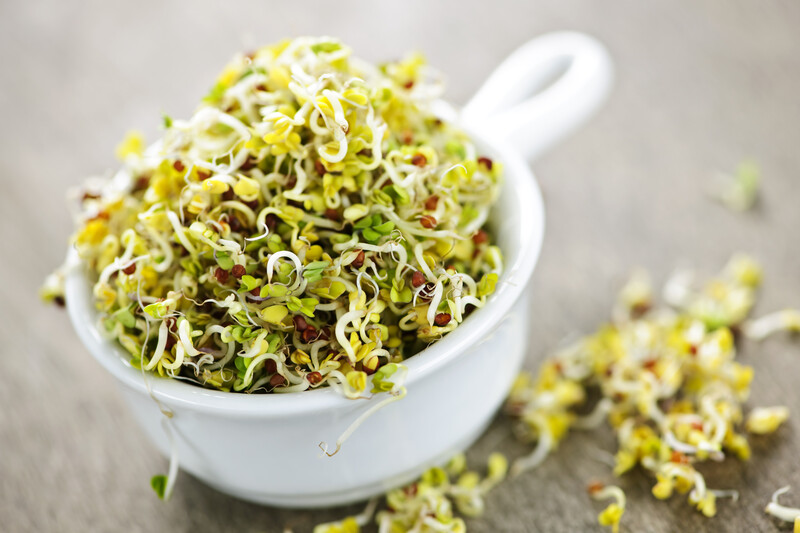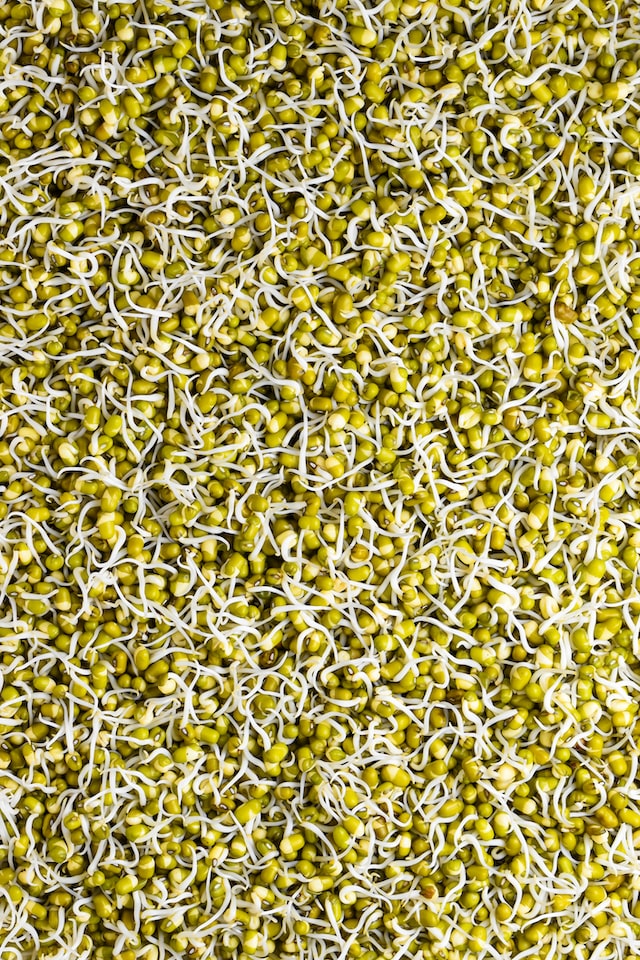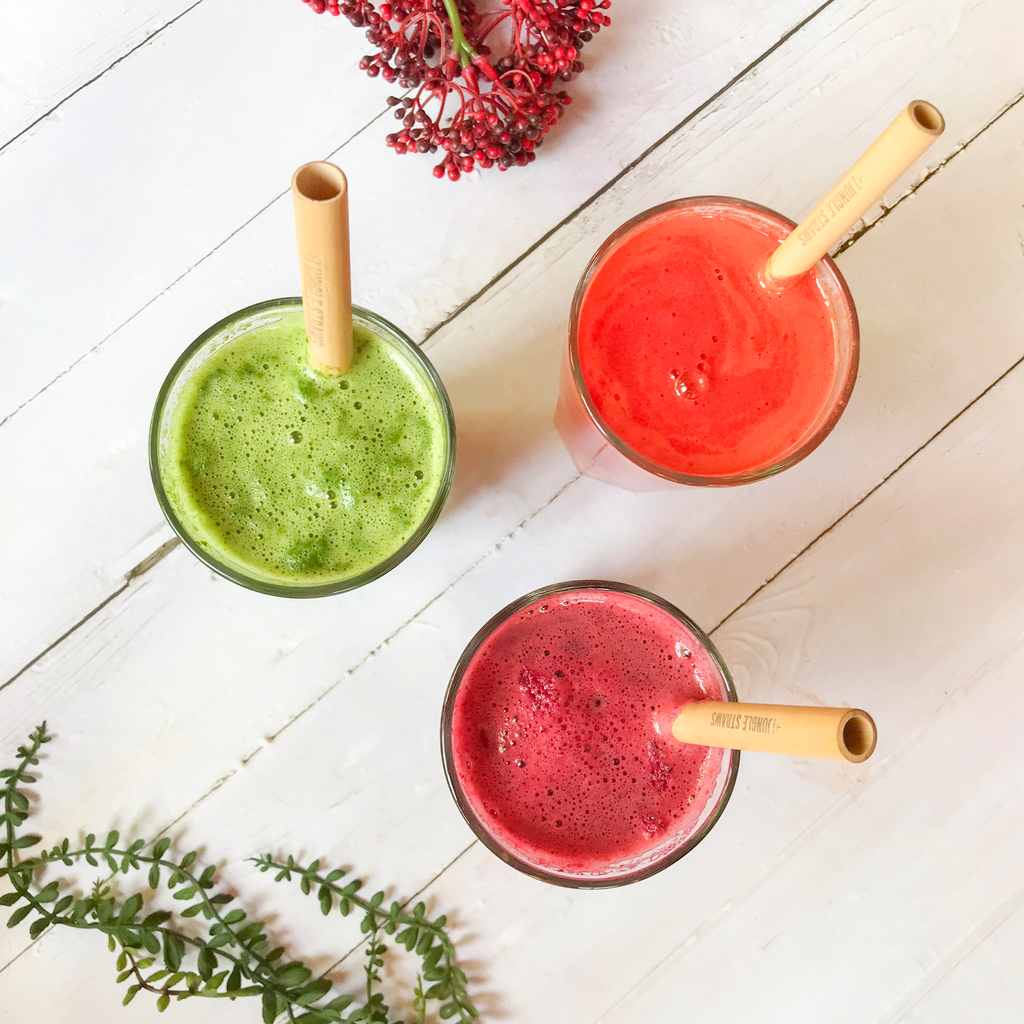Sprouts are one of the healthiest foods on the planet – as Doug Evans suggests with his book title – they are the planet’s most nutritious food!
With so many varieties of sprouts out there to grow, it can be hard to know which sprouting seeds to buy first.
In this quick guide, I’ll hopefully make that choice a bit easier. Walking you through 5 of the best sprouts to grow, with 5 of the healthiest (and tastiest) sprouts out there.
All sprouts are packed with micronutrients and are like nature’s own multivitamins. In this quick guide, I will highlight the most prominent mineral and vitamin profiles in each variety.
1. Sunflower Sprouts
Sunflower seeds are some of the largest seeds you will come across when sprouting and they have one of the most refreshing flavours.
Sunflower sprouts are great to grow as their sprouts contain high levels of protein and essential amino acids (the building blocks of protein).
They are also an excellent sprout to grow for your overall wellness, as they are packed with Vitamin B which is proven to help reduce stress levels.
The high levels of zinc found in sunflower sprouts can help to regulate and balance your body’s hormones.
Sunflower sprouts are a great source of minerals, containing high levels of calcium, magnesium, potassium and iron.
Sunflower sprouts contain vitamins A, D, E and B.
2. Pea Shoots
Fresh, delicious and crispy – Pea shoots are packed with micronutrients and antioxidants.
Vitamin C is found in high amounts in pea shoots, similar to the quantity found in oranges. This is great news as vitamin C is an essential vitamin. One that helps with our natural immunity and protects us from cell damage.
Pea shoots also have a good carotenoid profile, showing high levels of beta-carotene and lutein.
Usually known to be found in carrots, beta-carotene is essential for our health as it converts into vitamin A. Carrots are known to ‘help us see in the dark’ as vitamin A helps improve our eye health and vision. Vitamin A also helps us with healthy skin and a stronger immune system.
Lutein is also known to be good for eye health as it helps prevent age related macular disease (the leading cause of blindness and vision impairment).
Pea Shoots are good sources of phosphorus, iron, magnesium + Vitamins A, C and E.
3. Broccoli Sprouts
With a spicy earthy taste and one of the most nutrient-dense sprout profiles, it’s no wonder broccoli sprouts are so popular!
Broccoli sprouts are packed with protein and fibre whilst being low in calories. Containing around 2g of protein and 2g of fibre to 20 calories in 1 cup (250ml) of broccoli sprouts.
As well as bursting with nutrients and minerals, broccoli sprouts are also excellent sources of sulforaphane.
Broccoli sprouts contain 10-100 times the amount of glucoraphanin (the nutrient that converts to sulforaphane) as a mature broccoli plant.
Sulforaphane is known to have an abundance of health benefits including improved digestion and is a preventative against common diseases such as cancer, diabetes and heart disease.
Broccoli sprouts are a great source of iron and calcium, as well as vitamins A & C.
4. Radish Sprouts
Radish makes for a deliciously strong, crisp and spicy tasting sprout that helps enhance dishes like salads and soups.
It’s not just the flavour that’s enhanced though. With such a wide range of vitamins, minerals and amino acids, radish sprouts are a great health booster to add to your meals.
Radish sprouts are good for helping to improve digestion whilst also fighting off cancer causing carcinogens due to their rich chlorophyll content.
Radish sprouts are high in the minerals calcium, iron, copper, magnesium, zinc, phosphorus and potassium.
Vitamins A, B6 and C are all found in radish sprouts.
5. Alfalfa Sprouts
The alfalfa sprout has a mild nutty taste, meaning you can hide it in more dishes for a subtle health kick, without vastly affecting the taste of your meal.
Alfalfa is one of the sprouts with the most known health benefits and therefore had to make it onto the list of my 5 best sprouts to grow.
Great for cardiovascular health, alfalfa sprouts contain compounds called saponins which help to reduce LDL Cholesterol.
LDL Cholesterol, also known as ‘bad’ cholesterol is common in modern diets and when too many unhealthy fats are consumed this cholesterol can build up in our arteries, potentially leading to negative cardiovascular health conditions such as heart attacks and strokes.
When LDL cholesterol levels are lowered, this helps blood to flow freely around the body and results in improved heart health.
As well as helping with heart health, alfalfa sprouts can help improve our digestion, immunity and weight loss – at just 7.6 calories per 250ml serving.
As well as being excellent sources of saponins, protein and fibre; alfalfa sprouts also contain a range of minerals including calcium, magnesium, copper and potassium.
Alfalfa sprouts are great sources of vitamin K and vitamin C.
Conclusion
There’s a whole world of sprouting goodness out there for you to enjoy but these 5 should give you a good start.
Hopefully, this short guide has made choosing what sprouts to grow a little less overwhelming and helped you choose the best variety (or varieties) for you.
If you need some equipment to start sprouting you can use a mason jar and a cheesecloth wrapped around the top as a drainable lid.
if you need help getting started growing sprouts – Click here to check out the sprouting jar kits I use. Available as a set or if you already have mason jars you can just buy the lids.
For good quality sprouting seeds from organic farmers check out Sky Sprouts and Grow Sow Greener.
Need more inspiration to grow your own sprouts? Check out my article here – 20 Reasons to Grow Your Own Sprouts – The Amazing Benefits of Growing & Eating Sprouts.






